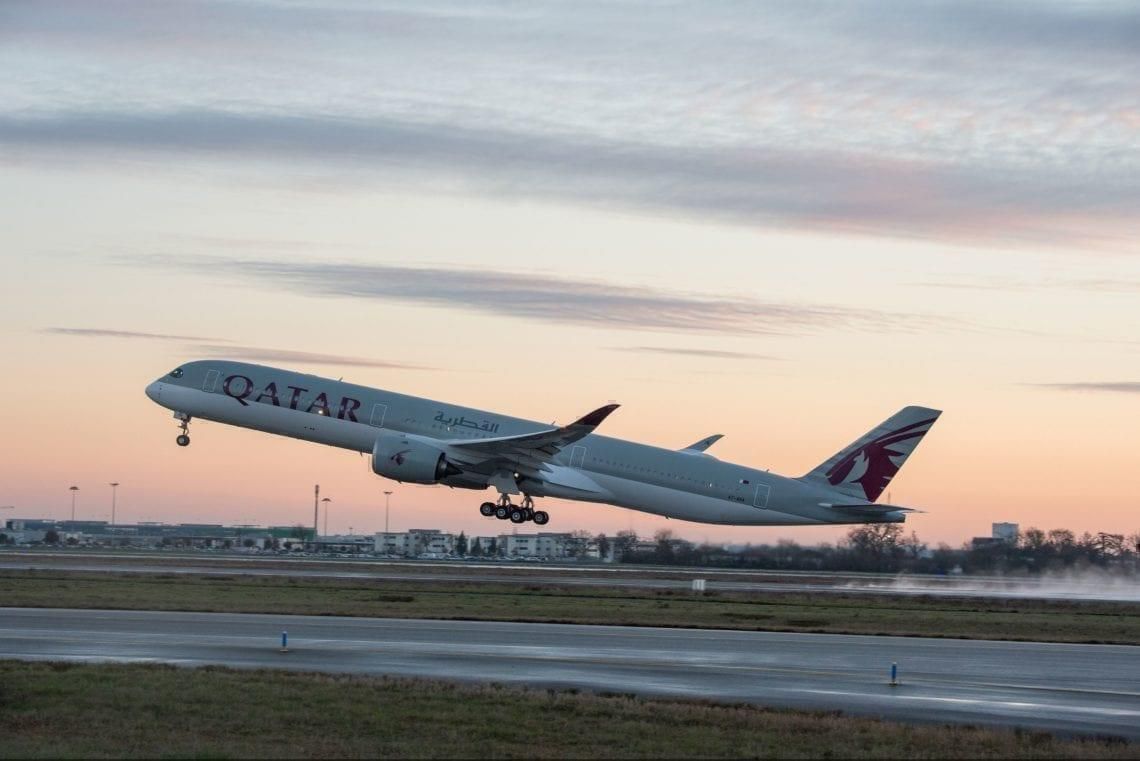Qatar Airways has just revealed that it has had its most difficult year operating in its entire history.
This is because, for the last year, the country of Qatar and principal owner of the state-run flag carrier has been completely blockaded by its neighbours in the Gulf region. As this is an aviation industry blog and hardly a political discourse forum, we suggest readers who want to understand the conflict in detail start reading up on it here.
As part of the Qatar diplomatic crisis, Qatar planes are banned from landing or flying through rivals airspace, and likewise, routes by neighbouring flag carriers to Qatar airports have been cancelled (Such as Etihad and Emirates).
We wrote a previous article a few months ago how the only way Qatar was able to get fresh fruit was by flying it in via a fleet of Qatar Boeing 747 cargo planes (which they looked at expanding the fleet).
But now that it’s been a full financial year since the blockade started, Qatar has been able to release its financial results.
The Results
Qatar has posted the following top line results:
- Revenue grew by 7.22% compared to passenger capacity
- Revenue per available seat kilometre grew by 9.96%
- Net loss of 252 million QAR ($69 million USD)
They have claimed that revenue growth is less than expected due to the illegal blockade by rivals. Revenue from cargo transport was actually increased (as predicted in our last article) by 34%, which makes sense if you consider that they can’t transport anything in from other countries nearby.
They also have said that whilst 18 routes have been cancelled this year, 14 routes have been created. As route creation has upstart costs, this attributes to less revenue that would have been gained from cancelling routes.
The CEO of Qatar, Akbar al-Baker, had this statement
“This turbulent year has inevitably had an impact on our financial results, which reflect the negative effect the illegal blockade has had on our airline. However, I am pleased to say that thanks to our robust business planning, swift actions in the face of the crisis, our passenger-focused solutions and dedicated staff, the impact has been minimised – and has certainly not been as negative as our neighbouring countries may have hoped for.”
Are they telling the truth?
We have to consider that this entire situation, with the blockade and Qatar’s airline performance, is political, and any major losses or impact of the blockade on the government-run airline might be a victory for their enemies. If you read the statement above, you can read between the lines and see that it's rather smug towards the blockade countries.
If we put on our tinfoil hats, we might consider that they are hiding the major impact of the blockade, and not reporting further investment by the government, through tax breaks or waiving operational fixed costs (Such as reducing costs for the airline, such as cheaper fuel).
It's also been rumoured that they devalued their points in their loyalty program by 50%, and thus reduced the liability of the program by 50%. This has the effect of making the company look more healthy, at the cost of brand loyalty.
Reading comments online makes us suspect, such as one from Robbo:
"May 27 this year, overnight, they defrauded their most loyal customers, without notice. They devalued the program by 100%. They upped the cost of redeeming miles by 100% overnight, without notice. They added a charge of up to USD 50 to even book an award ticket, per sector no less. Done overnight, without notice. And this applies to even their most loyal customers, their Platinum’s. They upped the cost of their fuel surcharges, Overnight, without notice. They reduced award availability. Overnight, without notice"
To this author, it seems a bit unrealistic that an airline losing 18 routes in a year would report just a small loss, but perhaps Qatar is that good at surviving their worst year ever. We look forward to seeing how Qatar continues to pivot in future and moving away from relying on its neighbours for business.
What do you think? Let us know in the comments!
Featured Image: Airbus

